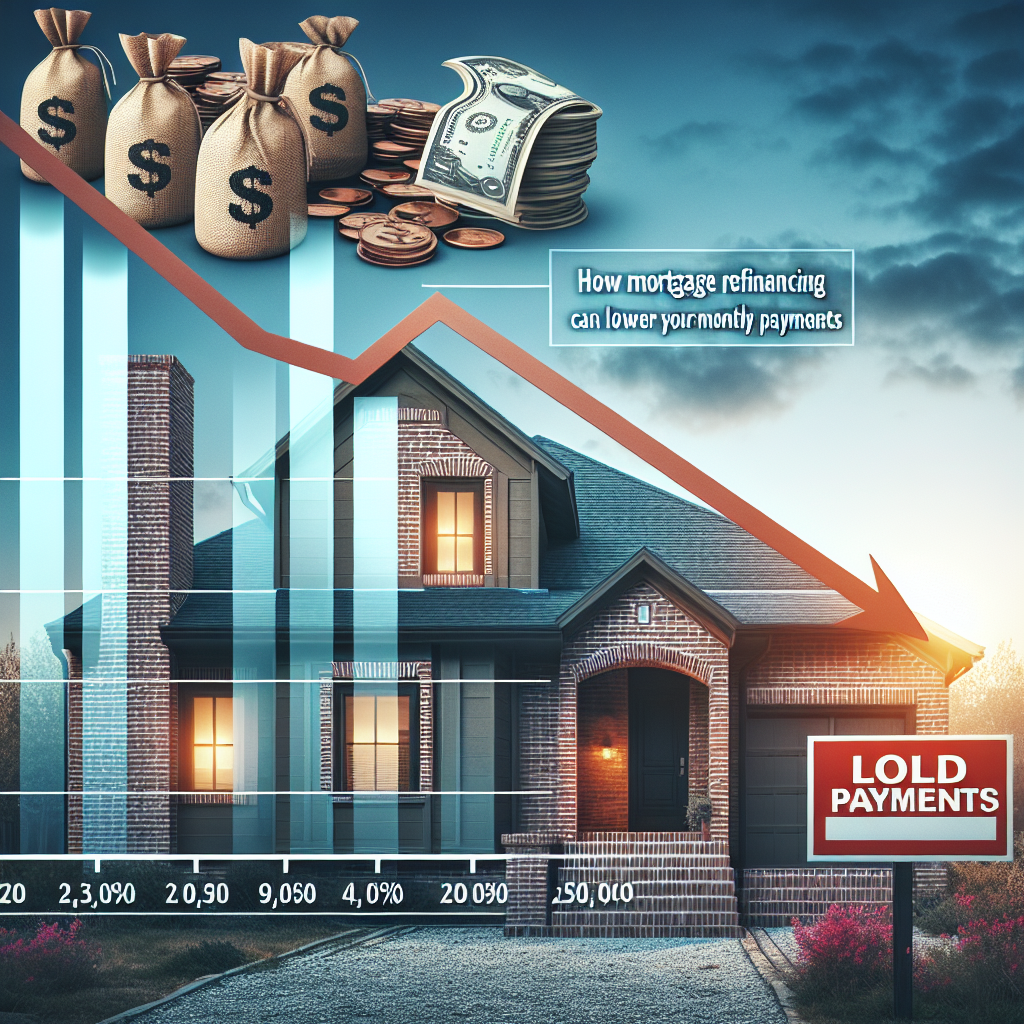Mortgage refinancing is a strategic financial move that many homeowners consider to reduce their monthly housing costs. This process involves replacing your existing mortgage with a new one, often with more favorable terms. In this article, we will explore how mortgage refinancing can lower your monthly payments, the benefits it offers, and important factors to consider before making this decision.
Understanding Mortgage Refinancing
What is Mortgage Refinancing?
Mortgage refinancing is the process of obtaining a new mortgage to replace an existing one. Homeowners may choose to refinance for various reasons, including securing a lower interest rate, changing the loan term, or accessing home equity. By refinancing, homeowners can lower their monthly payments, shorten the loan term, or even cash out some of their home equity.
How Does Refinancing Work?
When you refinance your mortgage, the new lender pays off your existing mortgage, and you start making payments on the new loan. The refinancing process is similar to applying for a mortgage in the first place. You will need to submit financial documents, provide credit information, and potentially pay fees associated with the refinancing process.
How Mortgage Refinancing Lowers Monthly Payments
Lower Interest Rates
One of the primary ways refinancing can lower your monthly payments is by securing a lower interest rate. If interest rates have decreased since you took out your original mortgage, refinancing may allow you to lock in a lower rate. A lower interest rate means that less of your monthly payment goes toward interest, directly reducing your overall payment.
Extending the Loan Term
Another way to decrease your monthly mortgage payment is to extend the loan term. For example, if you originally financed your home with a 15-year mortgage, refinancing to a 30-year mortgage will lower your monthly payment. However, it’s essential to note that while this option makes your payments more affordable, it may result in paying more interest over the life of the loan.
Switching to a Fixed-Rate Mortgage
If you currently have an adjustable-rate mortgage (ARM), refinancing to a fixed-rate mortgage can provide stability and predictability in your monthly payments. ARMs can have fluctuating interest rates, which can lead to unexpected increases in your payments. A fixed-rate mortgage ensures that your interest rate—and consequently your payment—remains constant over time.
Additional Benefits of Mortgage Refinancing
Accessing Home Equity
Refinancing can also give you access to your home equity, allowing you to take out a portion of your home’s value in cash. This can be valuable for funding home improvements, paying off debt, or financing other large expenses. However, it’s essential to consider the long-term implications of borrowing against your home, as it may increase your overall debt load.
Consolidating Debt
Homeowners looking to consolidate high-interest debt may find refinancing advantageous. By accessing home equity, you can pay off credit cards or loans with higher interest rates. This could potentially save you money in interest payments while providing a simpler monthly payment structure.
Potential Tax Benefits
Depending on your financial situation, mortgage interest may be tax-deductible. When you refinance, you may still benefit from these deductions, depending on how you use the funds from the new loan. Be sure to consult with a tax professional to understand how refinancing may impact your tax situation.
Factors to Consider Before Refinancing
Closing Costs
While refinancing can lower your monthly payments, it is essential to consider the closing costs associated with obtaining a new loan. Closing costs typically range from 2% to 5% of the loan amount and can sometimes outweigh the savings from the lower interest rate.
Break-Even Point
Calculating the break-even point is crucial before deciding to refinance. This is the point at which your savings from lower monthly payments equal the costs incurred during refinancing. If you plan to stay in your home long enough to reach the break-even point, refinancing may be worth it.
Your Credit Score
Your credit score plays a significant role in determining the interest rate you will receive when refinancing. A higher credit score may qualify you for better terms, while a lower score could limit your options. Consider improving your credit score before applying for a refinance to secure the best deal possible.
Conclusion
Mortgage refinancing can be an effective strategy to lower your monthly payments, making homeownership more affordable. By taking advantage of lower interest rates, extending loan terms, or switching to fixed-rate mortgages, homeowners can achieve significant savings. However, it’s essential to carefully weigh the benefits against potential costs and your long-term financial goals. Be sure to consult with a financial advisor or mortgage professional to explore your refinancing options and determine the best path forward for your financial situation.

